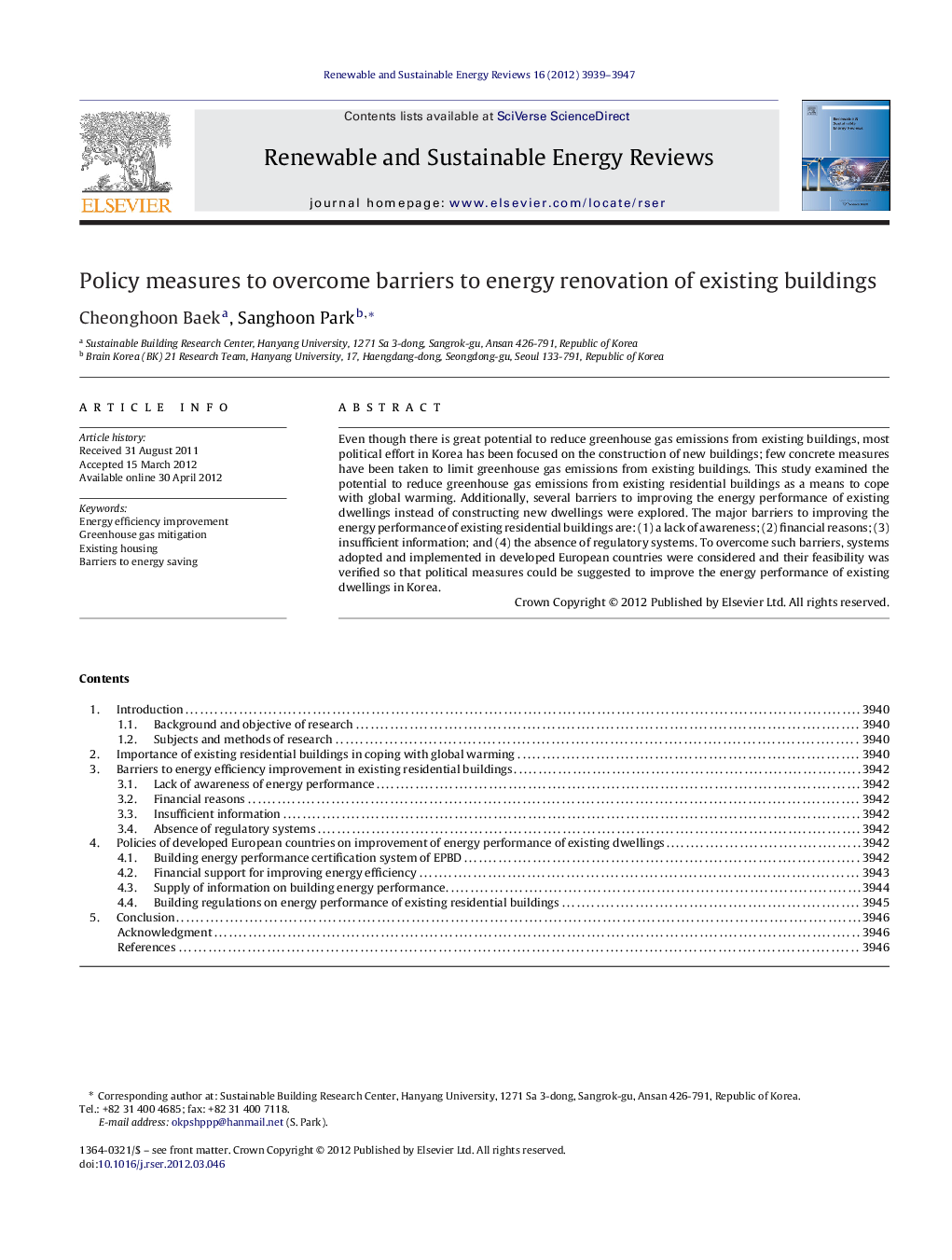| Article ID | Journal | Published Year | Pages | File Type |
|---|---|---|---|---|
| 10689877 | Renewable and Sustainable Energy Reviews | 2012 | 9 Pages |
Abstract
Even though there is great potential to reduce greenhouse gas emissions from existing buildings, most political effort in Korea has been focused on the construction of new buildings; few concrete measures have been taken to limit greenhouse gas emissions from existing buildings. This study examined the potential to reduce greenhouse gas emissions from existing residential buildings as a means to cope with global warming. Additionally, several barriers to improving the energy performance of existing dwellings instead of constructing new dwellings were explored. The major barriers to improving the energy performance of existing residential buildings are: (1) a lack of awareness; (2) financial reasons; (3) insufficient information; and (4) the absence of regulatory systems. To overcome such barriers, systems adopted and implemented in developed European countries were considered and their feasibility was verified so that political measures could be suggested to improve the energy performance of existing dwellings in Korea.
Related Topics
Physical Sciences and Engineering
Energy
Renewable Energy, Sustainability and the Environment
Authors
Cheonghoon Baek, Sanghoon Park,
